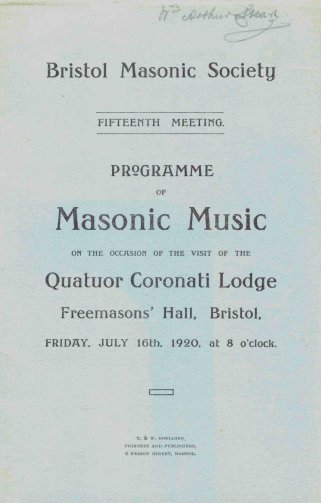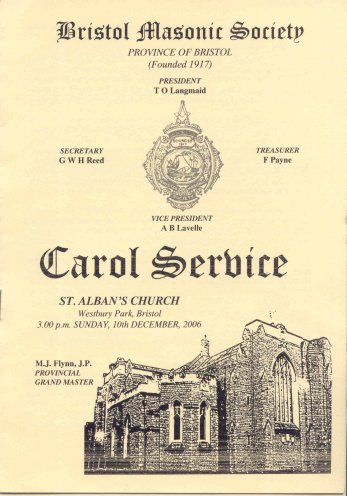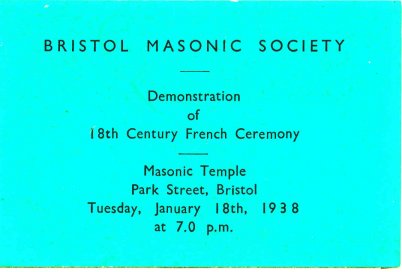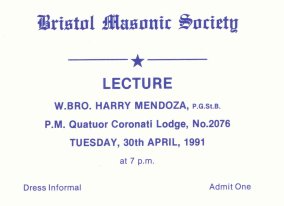|
1917 was a bleak year in Bristol
- Britain had been at war for three years. For the first two years
national newspapers had painted an optimistic picture of the campaign
in France and enthusiastic volunteers had flocked to the front.
However, between July and September 1916, over 420,000 British
soldiers had died in the Battle of the Somme. Conscription had
been introduced in 1916 and was being gradually extended to include
married fathers in their thirties and forties. In July 1917, the
British launched the third Battle of Ypres at Paschendale, in
an attempt to break out of the trenches. To begin with there were
encouraging gains, but by August it was clear that this offensive
too was failing in its objectives - the country was sick of war.
Bristol's seamen were facing attacks by U-boats and its civilians
were struggling with shortages of essential foodstuffs. By 1917
there were meat-less and potato-less days in public eating places
and the government was exhorting people to eat less bread. Like
most cities, Bristol was becoming a joyless place; the streets
were conspicuously short of young men. There were thousands in
War Hospitals in and around Bristol and many wounded soldiers
in their distinctive blue uniforms, were to be seen being herded
around the City on outings and excursions.
 English
Freemasonry was celebrating the Bi-Centenary of the formation
of the First Grand Lodge. The Pro Grand Master, Lord Ampthill,
had wanted 'a feast of reason and a flow of the soul'. He was
keen on a demonstration of real hospitality: 'we must receive
[our guests] into our homes and show them something of our lives
and of English life in general.' The War, however, undermined
Ampthill's ambition to create an Imperial and International event,
and wartime food controls ruled out any idea of a banquet. English
Freemasonry was celebrating the Bi-Centenary of the formation
of the First Grand Lodge. The Pro Grand Master, Lord Ampthill,
had wanted 'a feast of reason and a flow of the soul'. He was
keen on a demonstration of real hospitality: 'we must receive
[our guests] into our homes and show them something of our lives
and of English life in general.' The War, however, undermined
Ampthill's ambition to create an Imperial and International event,
and wartime food controls ruled out any idea of a banquet.
It was against this backdrop that our Bristol Brethren embarked
on the formation of a Masonic Society. According to the first
President, Dr. (later Sir) Ernest Cook, the form of a Society
rather than a Lodge was chosen: 'for various reasons, chiefly
financial' - there would be no requirement to pay either Grand
Lodge or Provincial Grand Lodge dues.
The Society's first meeting was held on 5th October 1917 and,
in his inaugural address, Dr. Cook stated: 'The objects of the
Society should be to increase the interest of Brethren in Freemasonry
by means of lectures, papers and discussions on its history, antiquities,
ritualism and symbolism, and to provide a centre and bond of union
for Masonic students in the Province of Bristol.'
 The early meetings of the Society each lasted for more than two
hours, during which there was no limit to the numbers of papers
presented. Time was also allowed for questions and answers, and
usually an object of Masonic interest was presented, such as an
item of regalia, a certificate, or other artefact. There was an
intermission between papers for coffee and biscuits, but for many
years the Society did not dine.
The early meetings of the Society each lasted for more than two
hours, during which there was no limit to the numbers of papers
presented. Time was also allowed for questions and answers, and
usually an object of Masonic interest was presented, such as an
item of regalia, a certificate, or other artefact. There was an
intermission between papers for coffee and biscuits, but for many
years the Society did not dine.
Since 1925, every Bristol Craft Lodge has appointed a Masonic
Society Lodge Representative. His duties are: to inform his Lodge
of forthcoming meetings of the Society; to encourage Master Masons
to join; and to collect questions from members of his Lodge, to
be answered at the next Society meeting.
 Freemasons'
Hall in Park Street, where all Bristol Lodge and Chapter meetings
are held, was almost completely destroyed by enemy bombing in
November 1940. From then on, until the reconstructed Hall was
re-opened in 1957, the Society met at a total of eleven different
venues, including the Hawthorn's Hotel, the City Museum Lecture
Theatre, and the Victoria Rooms. Freemasons'
Hall in Park Street, where all Bristol Lodge and Chapter meetings
are held, was almost completely destroyed by enemy bombing in
November 1940. From then on, until the reconstructed Hall was
re-opened in 1957, the Society met at a total of eleven different
venues, including the Hawthorn's Hotel, the City Museum Lecture
Theatre, and the Victoria Rooms.
.jpg) Summer Outings were very popular from the outset, but had to be
suspended during the Second World War. The outings were all made
by charabanc until 1930, when the Great Western Railway Co. offered
to run a special train for the Society. They offered two dining
cars and submitted two alternative menus. The Committee asked
the Secretary to get back to G.W.R. as the Society would need
three dining cars, rather than two, to allow all the Brethren
to dine, since they were hoping 120 Brethren would attend!
Summer Outings were very popular from the outset, but had to be
suspended during the Second World War. The outings were all made
by charabanc until 1930, when the Great Western Railway Co. offered
to run a special train for the Society. They offered two dining
cars and submitted two alternative menus. The Committee asked
the Secretary to get back to G.W.R. as the Society would need
three dining cars, rather than two, to allow all the Brethren
to dine, since they were hoping 120 Brethren would attend!
The Society continues to hold five meetings a year, with the option
to dine afterwards, and also a Summer Outing. Annual Transactions
have been published since 2004. In early December, the Society
also organises a family Carol Service for the Masonic Province
of Bristol.
 In order to maintain interest and enthusiasm, from an early stage another
important precedent was established, namely the creation and appointment
of Bristol Masonic Society Lodge Representatives, so that every
lodge in the Province of Bristol could be informed of the Society's
meetings, their virtues extolled and more particularly to collect
questions from the lodges to be answered by the Bristol Masonic
Society. Eventually the Lodge Representatives were to become members
of the General Committee itself and this is still the situation.
In order to maintain interest and enthusiasm, from an early stage another
important precedent was established, namely the creation and appointment
of Bristol Masonic Society Lodge Representatives, so that every
lodge in the Province of Bristol could be informed of the Society's
meetings, their virtues extolled and more particularly to collect
questions from the lodges to be answered by the Bristol Masonic
Society. Eventually the Lodge Representatives were to become members
of the General Committee itself and this is still the situation.
|